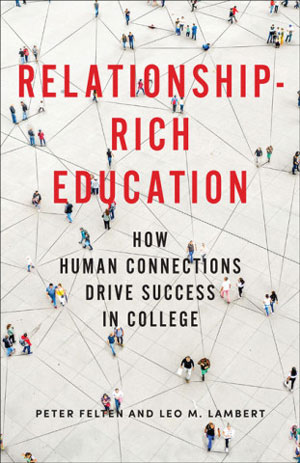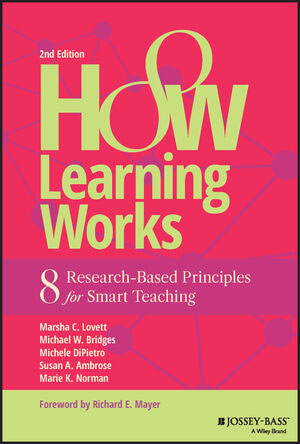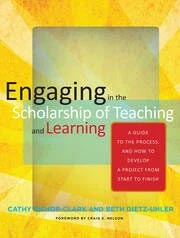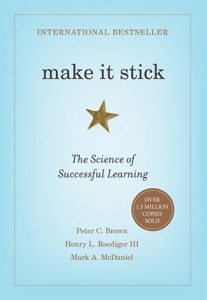Can You Remember Students’ Names?
Through our Thank-a-Professor Program, student panels, focus groups, and everyday conversations, we are fortunate to hear from students about their best learning experiences at FSU. One undergraduate told us a story about how much she appreciated an instructor who made a point of learning the names of all fifty students in her class. We asked her to elaborate a bit so that we could share what struck her:
Over the years we’ve heard many similar tributes from students who felt validated and inspired when their instructors knew their names. Our names are part of our identities, so calling students by their names helps to acknowledge and connect with them on a human level. As the student we cited above explained, learning students’ names can increase their motivation and participation in the class. They feel both encouraged and more accountable when they are not anonymous. Most of us have a hard time learning names, though, and we may avoid using them if we’re worried we might draw a blank or mispronounce someone’s name. Here are some strategies that can help:
Remembering Names
CMU’s Eberly Center has some great suggestions for remembering students’ names. You can quiz yourself using the photos on your roster, make a seating chart, or ask students to introduce themselves in a memorable way in class. In very large classes, where you may have no hope of remembering all of your students’ names, you can ask them to share their names when they ask or answer questions, or you might try asking them to keep name tents on their desks.
Using Them Frequently
Calling students by name is good exercise for your memory. If it’s feasible for your class size, you can practice by taking attendance out loud the first few class sessions. Remembering students’ names makes it easier to get their attention during classroom activities, when they’re talking with one another and hopefully using each other’s names, too. (We can help them learn one another’s names by making quick introductions the first step of any in-class activity.) Using their names when you refer to points students make in class, or their work on assignments, shows that you’re taking their ideas seriously.
Pronouncing Them Correctly
Sometimes we have difficulty pronouncing names from cultures or languages other than our own, but showing care for the way a student’s name is pronounced is a way of honoring their identity. If you invite students to introduce themselves, either in class or on Canvas in a video, you will hear them pronounce their own names, and then you can practice pronouncing them the same way. You might ask students to write their names and pronunciations on a notecard. Since students are often uncomfortable correcting their professors, you can invite corrections, to emphasize that you are invested in getting it right. We also have a tool called NameCoach in Canvas and on our rosters (on your roster, click the megaphone icon in the column right next to the student’s name). It gives you recordings of students pronouncing their own names. Since this program hasn’t been widely used yet, there may be only a few recorded names, so you can normalize learning pronunciations by asking students to go in and record theirs and by recording yours. You might also try nameshouts or other resources.
If you have a great strategy for remembering students’ names or pronouncing them correctly, please share it with us at pro-teaching@fsu.edu.
2024 FALL FACULTY READING GROUPS
This semester the Center for the Advancement of Teaching is offering the following faculty reading groups. Each group will meet once a week for three weeks to discuss the books in sections. We hope you can join us! Please register here.

Wednesdays: 9/11, 9/18, 9/25
1:30–3:00 p.m.
Strozier Library’s Graduate Conference Room 0005B
Print copy, delivered through interoffice mail
Peter Felten and Leo M. Lambert argue that education is not merely a series of transactions, but instead an opportunity for students to form a web of meaningful relationships that are vital not only to their academic success but also to their sense of belonging and self-discovery. They explain that social connection and belonging are not just pleasant extras in college, but prerequisites for learning, especially for powerful learning. The book provides examples and strategies for how institutions can foster richer learning environments, and the reading group will discuss ways we can shape our teaching to cultivate community and connection in our classrooms.

Fridays: 9/20, 9/27, 10/04
1:00–2:30 p.m.
Dirac Science Library Conference Room
Print copy, delivered through interoffice mail
The newly updated edition of this important book translates decades of scientific literature into practical advice, introducing eight general principles of how people learn. The authors draw on cognitive, developmental, and social psychology, as well as educational research, anthropology, etc. The discussion spans issues from memory to motivation, integrating theory with real classroom examples. Participants will develop strategies for strengthening their own teaching through the application of these principles.

Tuesdays: 9/24, 10/01, 10/08
1:00–2:30 p.m.
432 Diffenbaugh
Print copy, delivered through interoffice mail
Most of our preparation for teaching (both our training and our planning) focuses on the content and the thinking students need to do, but Sarah Rose Cavanagh reminds us that learning is a highly emotional process. Anxiety and fear hamper learning, while powerful positive emotions can enhance it. Cavanagh offers concrete strategies for harnessing the power of emotion to galvanize learning.

Thursdays: 9/26, 10/03, 10/10
1:30–3:00 p.m.
204A LOV
Print copy, delivered through interoffice mail
Even if you’re not familiar with the scholarship of teaching and learning (SOTL)—a form of classroom research that can be done by faculty in any discipline—you may already be doing it. When you spot an issue in your teaching, generate a possible solution, and collect student data to see if the solution works, you’re engaging in SoTL informally. In this reading/working group, participants will learn approaches to doing SoTL more formally so that they can share their findings with a wider audience. In addition to learning about the process of doing SoTL, participants will actually get to engage in that process by designing a hypothetical or real project with support from the group. Beginners are very welcome!

Wednesdays: 10/09, 10/16, 10/23
1:30–3:00 p.m.
Dirac Library Conference Room
Print copy, delivered through interoffice mail
Intentional Tech: Principles to Guide the Use of Educational Technology in College Teaching by Derek Bruff explores how educators can thoughtfully integrate technology into their teaching practices to enhance student learning. Bruff provides practical strategies and real-world examples that emphasize intentionality and pedagogical purpose. Whether you’re a tech enthusiast or a cautious adopter, Intentional Tech offers valuable perspectives to help you navigate the evolving landscape of educational technology. Let’s gather, discuss, and discover new ways to make our teaching more intentional and impactful with educational technology. Note: AI tech was intentionally used in producing this blurb!

Fridays: 10/11, 10/18, 10/25
1:00–2:30 p.m.
Dirac Library Conference Room
Print copy, delivered through interoffice mail
In Make It Stick: The Science of Successful Learning, Brown, Roediger, and McDaniel assemble the most important current research on learning, to deliver “highly effective, evidence-based strategies to replace less effective but widely accepted practices that are rooted in theory, lore, and intuition.” It turns out that much of our intuition about learning is misleading; this book group will focus on using the research to develop more effective learning strategies for our classrooms.



